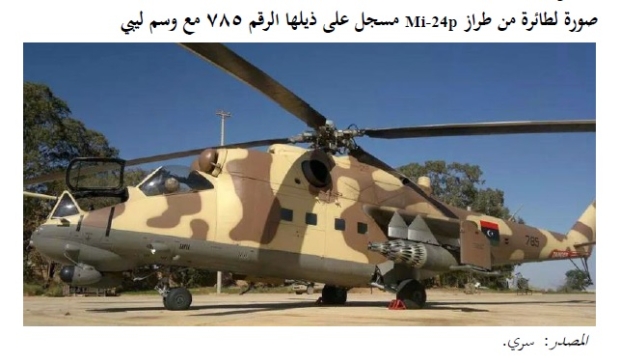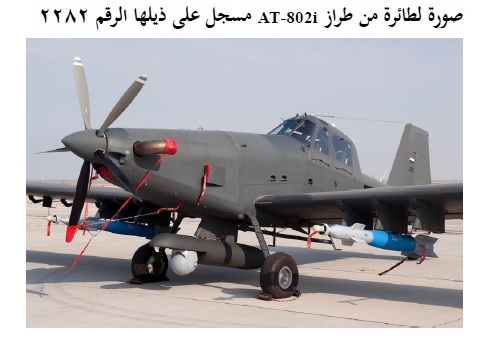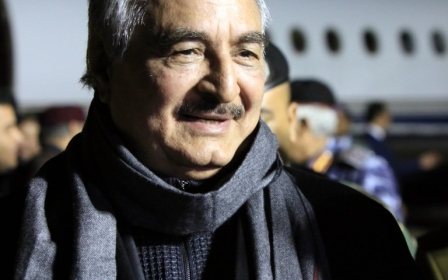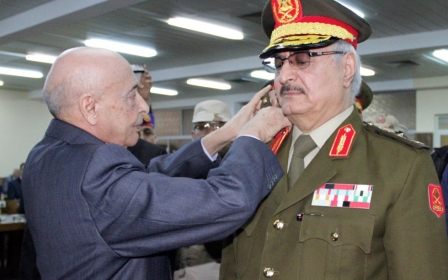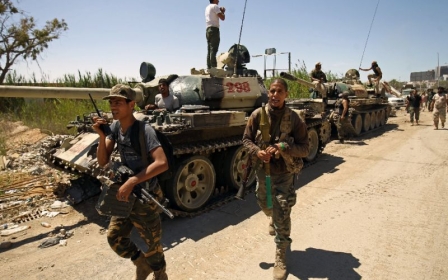UAE breaches UN embargo with gunship exports to Haftar
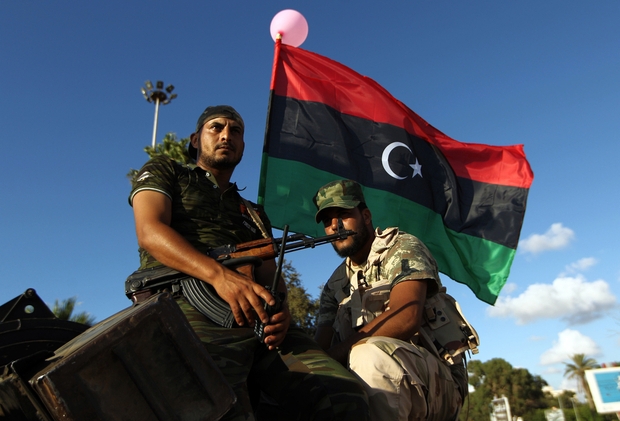
The United Arab Emirates has violated a United Nations arms embargo by providing attack helicopters, attack aircraft and armoured vehicles to forces loyal to Libyan strongman Khalifa Haftar, Middle East Eye can reveal.
The details of the UAE's efforts to arm Haftar's Libyan National Army (LNA) militia are contained in a 300-page UN Security Council report obtained by MEE. The report, which is due to be published in the coming days, documents the transfer of arms to all parties of the ongoing Libyan conflict in breach of a UN resolution.
Libya has been under an arms embargo since the 2011 uprising that drove then-leader Muammar Gaddafi from power, but the UN report details a "general increase in direct foreign support to armed factions in Libya".
The panel that compiled the report found evidence that helicopters, including a Russia-made Mi-24 Hind gunship, and a single-engine light attack plane have been based in eastern Libya after being transferred from the UAE to the LNA.
The heavily armed Mi-24 Hind helicopter was one of four models exported by Belarus to the UAE in 2014. The UN panel of experts found the aircraft is now in eastern Libya operated by the LNA.
It is operating alongside a US-produced light attack aircraft. The AT-802i was originally developed to fight fires, but has been converted as a counter-insurgency and strike aircraft. The manufacturer, Texas-based Air Tractor Inc, has exported 48 aircraft to the UAE and at least one of these has found its way to Libya, the report found.
There have been reports of combat aircraft being operated by Haftar's force, but the UN report is the first authoritative confirmation of their origin.
Libya has been beset by chaos since NATO-backed forces overthrew Gaddafi.
Western powers are now becoming increasingly concerned that the Islamic State (IS) group has built a presence in the North African state, and the US has responded by launching air strikes on the militant group.
The result of parliamentary elections held in 2014 were disputed, and those who held power refused to give it up and remained in the capital, Tripoli. The newly elected parliament moved to the port of Tobruk to set up a rival government.
There are also a unity government in the east and another centre of power around Haftar.
Based in eastern Libya, anti-Islamist Haftar styles himself as a bane of extremism, and he has become the dominant figure in eastern Libya since launching a campaign against Islamist groups and former rebels in Benghazi three years ago. Many suspect he seeks national rule.
According to the UN report, the air power provided by the UAE to Haftar's forces has allowed them to gain more ground and take control of larger areas of eastern Libya.
Rival powers in Libya have repeatedly asked the UN Security Council to lift an arms embargo so they can deal with IS and other militants, but in June last year the UN approved a further crackdown on arms smuggling in the waters off the Libyan coast.
The UAE failed to respond to the findings of the UN report, its authors said. MEE has contacted the UAE Embassy in London and a spokesperson for Haftar for comment.
The report comes as the ostracism of Qatar by Saudi Arabia and powerful Arab states, including the UAE, is deepening divisions between their respective allies vying for influence in wars and political struggles in Libya.
In Libya, the UAE and Qatar, which both played key roles in backing rebels in the uprising that toppled Gaddafi, have emerged as rivals on the battlefield with conflicting interests and visions.
The UAE, along with Egypt, has backed Haftar, appointed by a government and parliament based in the east. Qatar and Turkey have supported rival Islamist-leaning factions in western Libya.
Qatar's friends who retain a plausible chance at national leadership in Libya may have the most to lose from the row.
Haftar's supporters believe the Qatar spat vindicates their anti-Islamist stance, as Haftar has gained ground and the UN-backed Tripoli government that he has rejected has been floundering.
Any hardening of the Haftar camp's stance could complicate mediation efforts by Libya's neighbours to the west, Algeria and Tunisia, which have been pushing for an inclusive, negotiated solution.
"Qatar being made an example ... means that Haftar, Egypt and the UAE will experience much less diplomatic pushback as they ramp up their military campaign inside Libya itself," Jalel Harchaoui, a researcher at Paris 8 University, told Reuters on Friday.
This article is available in French on Middle East Eye French edition.
New MEE newsletter: Jerusalem Dispatch
Sign up to get the latest insights and analysis on Israel-Palestine, alongside Turkey Unpacked and other MEE newsletters
Middle East Eye delivers independent and unrivalled coverage and analysis of the Middle East, North Africa and beyond. To learn more about republishing this content and the associated fees, please fill out this form. More about MEE can be found here.


